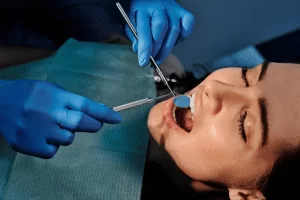
Maintaining good dental health is essential to ensure a healthy and happy life. However, even with regular dental check-ups, emergencies can arise that require immediate attention.
Whether it’s a sudden toothache, broken tooth, or any other dental emergency, it’s crucial to know when to seek professional help. Delaying treatment in such situations can lead to further complications and may even result in permanent damage.
In this blog, we will discuss some of the most common signs that indicate the need for dental emergency services. Knowing these signs can help you take quick action and prevent any serious dental issues.
So, let’s dive in and explore the signs that you should not ignore when it comes to your dental health.
5 Signs That You Already Need Dental Emergency Services
Dental emergencies can be distressing, yet prompt recognition of the signs that indicate the need for emergency dental services is crucial in receiving immediate care. The following are common indications that one should seek emergency dental services:
- Severe tooth pain: The sudden onset of severe tooth pain can signal serious issues such as an abscessed or cracked tooth.
- Broken or chipped tooth: A broken or chipped tooth requires immediate attention to prevent further damage and possible infection.
- Knocked-out tooth: A knocked-out tooth warrants urgent care. A higher chance of saving the tooth exists if it is properly cared for and re-implanted within the first hour of injury.
- Loose or missing filling: A dislodged or absent filling may leave the tooth vulnerable to decay and further damage.
- Bleeding or swollen gums: Bleeding or swollen gums may indicate periodontal disease or a serious gum infection.
It is vital to seek emergency dental services without delay when experiencing any of these signs or symptoms. Failure to seek immediate care may lead to more severe conditions such as tooth loss or infection. Do not hesitate to contact your dental professional for immediate assistance.
How Can a Dentist Help You in Emergency Dental Problems?
Dentists are well-trained to manage a variety of emergency dental problems and can provide immediate care to alleviate pain and prevent further damage. Here are some ways that a dentist can assist in emergency dental situations:
- Timely diagnosis and treatment: Dentists are trained to accurately diagnose and treat dental emergencies promptly. They can swiftly identify the cause of the problem and administer the appropriate treatment to address it.
- Pain management: Dental emergencies can be excruciatingly painful, but dentists have access to various pain management techniques to provide immediate relief. These may include local anesthesia, pain medication, or sedation.
- Damage repair: Dentists can repair a variety of dental emergencies, such as broken or chipped teeth, dislodged or knocked-out teeth, and lost or damaged fillings or crowns. Immediate attention to these issues can help prevent further damage and salvage the affected tooth.
- Infection prevention: Dental emergencies can increase the risk of infection, but dentists can take measures to prevent this from happening. They may prescribe antibiotics or perform root canal therapy to eliminate infected tissue and prevent the spread of infection.
In conclusion, dentists are crucial in addressing dental emergencies and providing immediate care to alleviate pain and prevent further damage. If you encounter a dental emergency, do not hesitate to contact your dental professional for swift assistance.
Final Thoughts
In summary, dental emergencies can occur suddenly and cause discomfort or pain. It is essential to recognize the signs that indicate the need for emergency dental services and seek prompt care from a dental professional.
Dentists are equipped to manage a wide range of dental emergencies and can provide immediate care to alleviate pain, repair damage, and prevent further issues.
Maintaining good oral health through regular dental check-ups and cleanings can also help prevent dental emergencies from occurring. If you experience a dental emergency, contact your dental professional for prompt assistance.